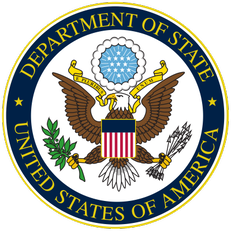


Fulbright Visiting Scholar Program 2024-25
Visiting Scholar Program deadline- 11:59 PM November 6, 2023
Menu
- Program Information
- Grant Benefits
- Eligibility Requirements
- Ineligibility
- Application Review Process
- Arrangements For Affiliation With A US Host Institution
- Application Link & Instructions
- The Project Statement
- Plagiarism
- List of Documents Required for Application Submission
- Recommendations
- Grantee Profiles
- Contact Us
Tips for an Excellent Statement (for Researchers and Artists)
In addition to following the format carefully, the following advice has been passed on from former Fulbright Scholars, review committees and CIES staff.
- Type a clear and complete project statement that introduces you professionally to the Selection Committee in Nepal and to your colleagues in the U.S.. The best applications are those that well reflect the applicant’s purpose and intent
- Make sure that your qualifications and expertise match the objectives in your project statement. Show that you are qualified to accomplish what you are proposing to do
- Show how your work is important to your country
- Emphasize how your project will benefit the host institution or other scholars/artists in your field both in your country and in the U.S.
- Address in your project statement the ways in which you will use the experience upon your return. What is the likely impact of your experience abroad? To whom? How will you use what you learned upon your return, professionally and personally?
- Connect your past experience to what you are preparing to do if you receive an award. Explain the project’s significance and its importance to the field
- Show a track record of relevant work. Do not assume that your suitability for the endeavor is self-evident. Your standing in your field may not be well known to reviewers. You need to make a case for yourself based on your past experience and current scholarly endeavors
- Use language that will be understood by reviewers from outside your field. This is especially important if you work in the Sciences
- Do not stress how a Fulbright grant will benefit only you or your career. Remember that the program is intended to foster mutual understanding between cultures and nations
- Be specific in laying out the nature of your proposed Fulbright activity. Show a step by step plan. A frequent failing in applications is that the proposal is underdeveloped or too imprecise to give reviewers a clear sense of the endeavor. Focus on what can be reasonably accomplished during the period of the grant
- Discuss any preparatory steps you have taken or will take before starting your grant. For example, if you plan to bring samples of plants, chemicals, human tissue, etc., indicate that you have discussed your plans with the U.S. Embassy and your prospective host, if known, in order to determine what clearance and approval processes are needed


